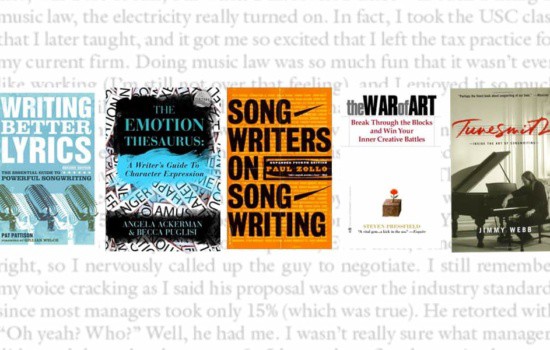Here are some steps that will help you learn songwriting and get you started on your songwriting journey…
Music Career Finder
Survey Start
Songwriting: Techniques, Tips, and the Affect of AI on Writing Songs

- Once you know the basics of songwriting, like song structure and melody, you’ll have a firmer foundation to build upon
- You can get unstuck as a songwriter by writing from another perspective, setting a time limit, or reading more
- Some tips for writing better melodies include writing the chorus first, writing a melody that moves, and using repetition
- Helpful songwriting tips include writing down every idea, rewriting, limiting your tools, and stream-of-consciousness writing
- Introduction
- The Basics of Songwriting
- Know Your Instrument
- Find Your Genre
- Choose a Song Structure
- Understand Melody
- Understand Chords
- Be Authentic
- Be Patient
- How to Get Unstuck
- Step Away
- Write With Others
- Write Something Else
- Write From Another Perspective
- Read
- Listen
- Set a Time Limit
- 5 Tips For Writing Melodies
- Improvise
- Learn the scales
- Chorus first
- Write a melody that moves
- Use repetition
- Understanding the Emotional Impact of Songs
- 17 Songwriting Tips & Exercises
- Write Everything Down
- Stay Curious, Be Aware
- Be Patient, Stay Open
- Write...and Rewrite
- Remove Distractions
- Write Only a Few Lyrics
- Write Lyrics That Fit Into Your Melody
- Limit the Tools You Can Use
- Write From Inspiration, Not Information
- Listen To Mozart
- Borrow Songs From Others
- Focus On Writing “Remarkable” Songs
- Try a Rhyming Dictionary
- Stream of Consciousness
- Pomodoro Technique
- Write a Lot of Songs
- Be Honest
- Leveraging Technology in Songwriting
- Artificial Intelligence and Songwriting
- Sources
Songwriting is an art, and thus there’s no way to know if you’re getting it right or wrong.
There’s no one who can say for sure whether the end product is wholly fantastic or terrible.
It’s all in the eyes, or the ears, of the beholder, as well as the artist behind the work.
But in this article, we’re going to walk you through some songwriting tips and exercises that can help you write songs you’re happier with.
For this article, we spoke with expert songwriters who have won GRAMMYs and written for and with some of the biggest artists in the world.
You’ll also see tips from household names like Post Malone, John Mayer, James Taylor, FINNEAS, and Ed Sheeran
The Basics of Songwriting
Know Your Instrument
While many artists bounce back and forth between styles and certainly use a lot of different tools, it’s important to choose your main instrument.
Piano and guitar are the two most common instruments songwriters play because they are two of the most versatile and easy to learn.
Find Your Genre
Genre isn’t as important these days as it used to be, but it’s a good idea to study other tracks that fit under the style you’d like to make.
To help find your sound, you can rewrite someone else’s song, according to songwriter Ben Johnson (Charlie Puth, Meek Mill, Justin Timberlake).
“A great way to start is to try to write a song that sounds like one of your favorite songs,” he said. “Then think about what you want to say, or what emotion you want to convey, and then just start singing.”
Choose a Song Structure
When you’re just beginning your career as a songwriter, you may want to start with something familiar and simple and work your way from there.
Most songs have verses, choruses, and bridges placed strategically, and most of the biggest hits follow similar song structures.
Get to know structures, what purpose each piece of the song serves, and how you can make each one as interesting and catchy as possible.
Understand Melody
A melody is the sequence of notes played or sung within a piece of music. And it’s the most important part of a song.
A simple melody may consist of just a handful of short notes and nothing else, but it can be incredibly effective at capturing the listener’s attention and staying with them long after the song is over.
When breaking down a melody, there are two primary components to consider: pitch and duration.
Pitch
In music theory, every note in a piece of music has its own frequency that it moves — or vibrates — on, which determines its pitch.
This is what gives each note its unique sound and allows us to differentiate between different notes in a melody.
Pitch can be thought of as how “high” or “low” a note sounds, in basic terminology. A melody can move up and down in pitch, creating a sense of movement and progression throughout a tune.
That is usually what makes a melody so memorable—the way the notes move in relation to one another, as it can create a sense of tension and release.
Duration
Duration refers to the length of time a note must be held, as well as the length of the break in between notes.
For example, a quarter note is one that lasts for one-quarter the amount of time of a measure that has been written in 4/4 time.
Duration plays an important role in shaping the overall feel of a melody.
For example, a sustained note can create a sense of tension or anticipation, while a series of shorter notes can create a more staccato, rhythmic feel.
Understand Chords
A chord is a group of musical notes played together within a given time frame.
Chords are an essential element in songs. They form the spine that other pieces hold onto.
This unique combination of notes doesn’t necessarily have to be played all at once, nor do they have to be played by the same instrument.
For example, a guitarist could strum the six strings of a guitar to play a chord, and on the other end of the spectrum, the people that make up an orchestra could play a single note each to form a chord.
The two primary chords are the major triad and the minor triad.
These chords consist of three notes, each developed and created on certain degrees of either a major scale or a minor scale. What separates a major chord from a minor one is the third note, which is very special.
A major chord has a “natural third,” or the third degree of the chord’s respective major scale.
On the other hand, a minor chord has either a “minor third” or a “flat third,” which is the third degree of the chord’s respective minor scale.
Be Authentic
Writing authentically can mean a lot of different things to a lot of different people, but all you need to focus on is that you have to be yourself.
Stick to your writing style, how you like to sing, and to what you want to say. Don’t try to copy others or pretend you’re someone you’re not.
People can almost always smell inauthenticity from a mile away.
Songwriting isn’t limited to penning hits for pop stars. Opportunities abound in various sectors such as film, television, advertising, and video games. Composing for these mediums requires adaptability and an understanding of different storytelling techniques. 
Engaging in diverse projects can not only provide additional income streams but also broaden your creative horizons. Institutions like Berklee College of Music offer programs that delve into these areas, preparing songwriters for multifaceted careers. 
Be Patient
Songwriting is a lifelong pursuit. If you want to get better, it may take years.
Songwriter Peter Zizzo (Vanessa Carlton, Avril Lavigne, Jason Mraz) said it could take a while for you to write a good song, and then even longer for that song to catch on with people.
“You never know when something might happen,” he said. “Could be decades down the road.”
Songwriter Cliff Goldmacher (Ke$ha, Keb’ Mo’, Mickey Hart) said you need to be “both macro-patient and micro-impatient,” meaning you have to patiently work at songwriting every day but also stay consistent over the years.
How to Get Unstuck
At some point in your journey as a songwriter, something is going to happen to you, and there is no way to get around it.
You’re going to get stuck. It’s called “writer’s block.”
So here are just a handful songwriting techniques on how to overcome writer’s block and get unstuck…
Step Away
Put down the paper and your audio recorder and do something else.
Stepping away from your song helps you return to it later with fresh ears. Sometimes you’ll want to back away for a day, sometimes a week or more.
You need time for your brain to settle and remove itself from the grueling songwriting process in order to read it and hear it differently.
Write With Others
When most songwriters are just starting out, penning lyrics and creating melodies is a lonely, solitary practice.
Some artists choose to work that way for their entire careers, but most musicians find collaborators who add their two cents and bring the tracks to a new level with their own songwriting tips.
If you’re just beginning your songwriting adventure, you may need to do some work to find people who want to write with you.
There are plenty of online forums and websites where you can do this, or you may want to stick closer to home and ask a friend, family member, classmate, or someone in a local band to join you.
Writing with others is a good way to flex a new muscle, learn from your collaborator, and experience how many of the biggest hits in the industry are crafted. Very, very few big tunes are composed entirely by one person.
Write Something Else
There is no rule that says you have to continue writing one song until it’s completely finished, no matter what.
In fact, that’s not how most tracks are created, so don’t feel bad if you get stuck.
When that does happen, walk away and immediately begin writing something else.
Maybe a chorus for another track, or even an email, an article, or a poem. Sometimes when you’re not thinking about the one cut, the solution can come to you.
Write From Another Perspective
If you’ve been writing a song from one perspective, why not try another?
If it’s about a boy pining for a girl, why not flip it around and do the opposite? Perhaps there’s another angle or side to the story that should be investigated? Or, if it’s sad, make the tune do a 180 and try penning it as happy.
You never know what will come out of this exercise until you’ve done it.
Read
Reading gets your mind off of your song and can give you new ides.
If you’ve been spending a lot of time thinking about words and what sounds most interesting and how they fit together and you’ve gotten yourself stuck, try filling your head with sentences and paragraphs and rhymes from other places.
Listen
As a musician, you’re already doing a lot of this, but if you’re stuck writing a new piece of music, you may want to stop listening to it over and over and over and press play on something else.
Listen to the words, the melodies, the harmonies, and how it all works together. The best artists borrow from others.
Set a Time Limit
Set yourself a time limit to finish the song you’re stuck on.
Maybe an hour, maybe three, maybe one day.
If you know there’s a stopping point, your brain may finally cease introducing new ideas and alternate options. Sometimes too much freedom is a bad thing and parameters can be helpful.
Hey, what do you think about trying our new Music Career HelperMusic Career Helper really quick? It’s totally free and could help get your career moving fast! Give it a try. It’s totally free and you have nothing to lose.
5 Tips For Writing Melodies
As someone who wants to become a working songwriter, you need to learn how to craft melodies people won’t forget.
If you want some help in that department, here are some tips that can help you along the way…
Improvise
One effective way to start the process of writing a song melody is to make things up on the spot. Improvise!
But try doing so by using only a specific set of chord changes. Let your fingers find the notes within those chords, and allow a new melody to emerge.
Many songwriters find a melody and then the lyrics by singing over a beat or a simple bed of music. It could be as simple as one instrument playing a chord progression, or a produced beat that’s closer to being done.
This process of songwriting is called “top lining.” And it’s the process that Post Malone often uses.
“Usually, I just go in and have [an] abnormal amount of Bud Light and go into the booth and just kind of sing over beats and wait until I find a good melody and then sit down and write it,” he said. “…And we’ve done that probably a hundred times and then just shift through them and then see which ones are smush hits.”
Learn the scales
Major and minor scales are the building blocks of most pop melodies, but don’t be afraid to explore beyond just those.
Try experimenting with dominant scales, altered scales, or modes to create unique and interesting melodies.
Of course, you’ll have to learn a bit about all of that first. Combining notes from different scales can bring you some pretty unexpected results.
Chorus first
Try to approach melody writing in a more structured way than you might normally be accustomed to.
Write the chorus melody first, and then work backward to put together catchy and meaningful verses and pre-choruses that work well with the chorus.
Here are some tips on how to write a catchy chorus:
- Keep it simple and memorable with short, repetitive phrases
- Focus on a strong hook (lyrically and melodically) and central theme that stands out
- Create contrast with the verse by changing melody, rhythm, or pitch in the chorus
- Use emotive yet universal lyrics
- Build energy and dynamics in the chorus with instrumentation, vocal delivery, and/or harmonies
- Make the chorus feel like a payoff or an emotional high point
- Test for singability, earworm potential, and experiment with different structures
Write a melody that moves
Most successful vocal melodies rely on motion, meaning that each note is only a half or whole step away from the previous one.
But, as with anything in art, the norms and rules can be broken. Try including a major jump — at least two steps. That mixes things up and intrigues the listener.
Use repetition
Repetition can be a powerful tool in songwriting — but sometimes it can feel a bit tired.
As you repeat phrases of musical moments, make some slight variations to the notes or rhythm each time it’s written.
This can add interest and complexity to the melody, and can help create a sense of development and evolution within the song
Understanding the Emotional Impact of Songs
Beyond technical proficiency, the emotional resonance of a song often determines its impact. As Kim Gordon recalls advice from Neil Young: “It doesn’t matter how good your vocal range is, but rather how authentic it sounds.” Authenticity in your lyrics and performance can forge a deeper connection with listeners.  
To tap into this, draw from personal experiences and emotions when writing. Songs that convey genuine feelings often resonate more profoundly, creating lasting impressions on your audience.
17 Songwriting Tips & Exercises
Some of these tips may not work for everyone, but you’ll never know until you try them and figure out what’s best for you and your creative process.
Write Everything Down
If you think of anything clever, funny, something that rhymes, or a particularly interesting way to convey a feeling or emotion — anything that may one day be of use to you in a song — write it down!
You may believe it’s the best thing you’ve ever come up with and you’re sure to remember it, but you won’t. We have all played that game before and lost.
Every time you see or hear something interesting, something that could be a song title or song idea, write it down and store it somewhere.
Call it a song library, an idea book, or whatever you want to call it. Writer Austin Kleon calls it a “swipe file.”
Then you’ll have a collection of things that could inspire your next song. And this collection of ideas will help you write more interesting songs faster.
Stay Curious, Be Aware
Good songwriters are aware, present, and curious.
Songwriter Aaron Espe – whose songs have been on Grey’s Anatomy, Orange Is The New Black, CMT, and many other places – told us “curiosity is my compass.”
“It starts with an idea,” he said. “…It could be the way somebody looked at you or something someone said or how they phrased it.”
When “something tickles you,” you know you have a song idea. And you need to capture that idea before it floats away and someone else grabs it.
“As a songwriter, it’s your responsibility, I think, to at least capture the idea somehow,” he said. “[You don’t have to] grab the guitar and write it all down right then, but you have to at least capture the idea.”
Espe said there are two places he’s sure to get a song idea: when he’s walking and when he’s driving. Two places where he has no distractions and can be fully present.
Be Patient, Stay Open
You could try all the songwriting tips in the world. But if you don’t leave room for patience and inspiration, you won’t make progress.
“We’re just basically waiting for magic to happen,” said Mayer. “Just slugging away till magic happens and then we take credit for it.”
You can’t force a song to happen. You can chip away at it and be persistent. But if it’s not cooperating, you have to keep working with it and wait for its timing.
Write...and Rewrite
So, you’ve come up with excellent rhymes, honed in on your melodies, and even recorded a demo of your song. That means you’re done, right? Not exactly.
Whenever anyone is writing something for public consumption, a big part of the process is rewriting.
Look at what you have and think of new ways to say what is already in front of you in black and white.
Are there other perspectives? Different adjectives or verbs that might spice things up? Perhaps a different rhyme scheme, or melody?
Maybe the composition is a bit too full and you need to space everything out a little, allowing the lyrics and the music to breathe.
Sound like a lot of work? Well, if you really want to write songs, rewriting them until they’re done is part of the process.
Goldmacher said you have to do songwriting because you feel you must.
“I think more often than not, you’re doing this because you can’t help it,” he said. “Maybe you’ve been writing poems or you’ve been playing music for a while, then all of a sudden you just sort of turn a corner and you want to put something new into the world.”
Remove Distractions
In today’s fast-paced world, it can be challenging to break free from the constant distractions surrounding us. Our busy schedules and electronic devices can take a toll on our mental state and change the way our brain functions.
Silence can do wonders for your mind. It’s essential to disconnect and ensure that nothing pulls you away, whether it’s music, your phone, or a computer.
Don’t worry about being productive during this time. Allow yourself to disconnect and embrace the peace and quiet.
Write Only a Few Lyrics
Simplicity is a valuable skill for any songwriter. By cutting out unnecessary words, you can get straight to the point and convey exactly what you want to say.
From there, you can always add in more ornate language or stylistic touches to enhance the piece.
Write Lyrics That Fit Into Your Melody
Once you find the melody, write lyrics that fit smoothly within your melody. When the lyrics flow off the tongue inside of a catchy melody, you know that song is a keeper.
But on top of that, the lyrics and concept of the song have to fit the feeling of the music. Mayer says writing lyrics and music is “like matching socks.”
“When the music sounds like the lyrics,” he said, “And the music and lyrics together sound like the idea and the music and the lyrics and the idea sound like the singer, then you got a song.”
Limit the Tools You Can Use
Modern music production has made it incredibly easy to create music using computers. These tools are fantastic, but sometimes having too many options can be overwhelming.
Try to start with a strict list of what you’re going to use. It might sound counterintuitive, but working within constraints can actually boost your creativity.
When you have to work with what you’ve got and push it to its limits, you gain a deeper understanding of the tools you’re using.
Write From Inspiration, Not Information
Music theory can be a very helpful tool for songwriters. But it cannot stop there. Music is an emotional thing, so you have to write songs that make you feel something, regardless of what music theory says you “should” do.
Mayer, who attended (but didn’t graduate from) Berklee School of Music, agrees.
“That’s information,” he said of music theory. “That’s just information, you know. When you start writing from information, it doesn’t work out. You have to convert that information into inspiration.”
He said it’s better to know what chords and chord progression make you feel a certain way, and then write from that approach.
“Inform with information your inspiration,” he continued.
“So that when that sunroof opens up and when you do find that beautiful 90 minutes of those skies parting and you go, ‘Oh, I’m getting the connection,’ you can be more prepared with the information of how to take that inspiration and make it happen.”
Listen To Mozart
If you’re looking for a way to boost your focus and creativity while writing music, try listening to Mozart.
While it may sound cliché, studies have shown that listening to Mozart — or any classical music, for that matter — can have a positive effect on your concentration and spatial-temporal reasoning.
Borrow Songs From Others
Be inspired and borrow ideas from other songwriters and poets. Use another songwriter’s song as an outline or re-write a poem from the public domain.
Drawing from others can enrich your own songwriting. James Taylor does this.
“Choose a song that you like, and then rewrite it,” he said. “But just write new chords to it and different lyrics but sort of keep the trajectory of the song, you know. …I was emulating people that I thought were good.”
He went on to say he rewrote “Treat Me Like You Did The Night Before” by The Beatles and he ended up with his song “Turn Away.”
“They’re nothing like each other, but it really does work, though,” he said. “You take a long song that you like and then you just rearrange it, give it a different melody, different lyrics. …You mustn’t actually, you know, steal it. Just use it as sort of a template.”
Focus On Writing “Remarkable” Songs
How do you know if your song is good?
If you’re song is remarkable, literally.
Espe says your song is remarkable when “…someone, of their own volition,” remarks about your song.
“This can’t be if you’re asking for feedback,” he said. “That doesn’t count. It is somebody reaching out to you in an email or coming up to you after a show. It could be someone messaging you on social media. However they do it, the person is going out of their way to say your song was meaningful to them.”
And you won’t really get a feel for what a remarkable song is until you start sharing your music with the world. It’s a hard truth, but if you don’t share your music, it will be hard to improve as a songwriter.
Try a Rhyming Dictionary
Using a rhyming dictionary can be an incredibly useful tool for any songwriter, and there’s no shame in utilizing it.
Even some of the most successful songwriters in the industry continue to use a rhyming dictionary to this day.
If you’re struggling to find the perfect word to fit into your rhyme scheme, check out RhymeZone or ask ChatGPT for some options.
Stream of Consciousness
Start writing without editing or even thinking.
Don’t judge anything that comes out — just let it flow.
After a while, you may notice certain patterns or chords that catch your ear.
The goal is to explore and experiment, so don’t be afraid of what happens, but do take note of things you like and try building off of whatever sparks your interest.
Pomodoro Technique
The Pomodoro Technique has become increasingly popular among individuals looking to increase their productivity and efficiency, and it’s very helpful for those often distracted by lengthy tasks.
The Pomodoro Technique works by breaking down work into 25-minute intervals, followed by a five-minute break. This strict schedule encourages individuals to stay focused during the designated work time, knowing that a break is coming up soon.
Write a Lot of Songs
There’s no shortcut to being an amazing songwriter. It takes work, it takes practice, it takes experience.
Ed Sheeran said the only way to become a good songwriter is by trudging through the process of writing bad songs.
“You view it as a dirty tap,” he said of songwriting. “When you flip a dirty tap on, it’s going to flow sh*t water out for a substantial amount of time.”
But he said if you keep going, if you keep writing, you’ll start to see progress. Eventually, “clean water’s going to start flowing.”
“And now and then you’ll get a bit of sh*t, but as long as it gets out of you, it’s fine,” he said. “So with songs, you’re going to write sh*t songs in the beginning. You are. My songs were terrible. …But I got it out of me.”
Be Honest
Some people write songs that are like diary entries. Others write lyrics that are veiled behind poetry. But both approaches can be honest, and an honest song will resonate with people.
FINNEAS has penned some of the biggest hits in modern music with his sister Billie Eilish. And he says he’s most proud of his most honest songs.
“I think the songs that I’m the most proud of were the songs that were very nerve-wracking to put out and to share with people,” he said. “And not necessarily the songs that make me look the best.”
Paul Simon also says he has to believe what he’s writing, or else it’s not a song worth his time.
“The only thought that I give to it is: ‘Is that something that I really believe?’” he told American Songwriter. “It doesn’t have to be insightful or anything. It just has to be not a lie. I can’t say, ‘I’m setting out to write a really deep, philosophical song.’ I would never say that. I have no idea.”
While honing your songwriting skills is essential, understanding how to build a sustainable career is equally important. Networking plays a crucial role; collaborating with other songwriters, producers, and artists can open doors to new opportunities. Platforms like SongTown offer monthly online writer meetings run by top industry publishers, providing a space to submit songs and receive feedback in a real-world context. 
Additionally, consider the business side of songwriting. Learning about music publishing, royalty collection, and licensing can help you monetize your work effectively. Organizations like ASCAP and BMI offer resources and workshops to educate songwriters on these topics.
Leveraging Technology in Songwriting
Modern technology offers a plethora of tools to enhance your songwriting process. Digital Audio Workstations (DAWs) like Logic Pro, Ableton Live, and FL Studio allow you to compose, arrange, and produce music from your home studio. For lyric writing, apps like MasterWriter and Lyric Notepad can help organize your thoughts and find rhymes.
Moreover, online platforms such as SoundCloud and Bandcamp enable you to share your music with a global audience, receive feedback, and build a fanbase. Utilizing these tools can streamline your workflow and expand your reach as a songwriter.
Artificial Intelligence and Songwriting
Artificial intelligence has developed to the point where it can create a complete song.
You can ask ChatGPT for lyrics, then input those lyrics to a website like Suno, and it will spit out a song with your lyrics in any genre you want.
Granted, the end result is generic and is sometimes obviously created by AI.
But what does this mean for songwriters?
Espe told us he doesn’t think it’s as good at getting to the heart of emotions as a human is (yet).
“…The best analogy I’ve heard is to treat it like a dumb intern,” he said. “I imagine it being a person in the room and I ask a question and they give me an answer, but I have to triple-check it.”
Sources
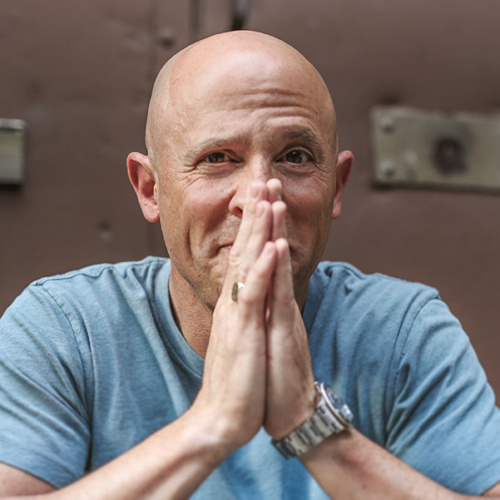
Cliff Goldmacher
In the music business for over twenty-five years, GRAMMY-recognized Songwriter Cliff Goldmacher is also a Producer, Engineer, Author, and Owner of recording studios in Nashville, Tennessee and Sonoma, California. A multi-instrumentalist and Session Musician, Cliff has recorded, played on, and produced thousands of recordings for major and independent Publishers, record labels, from up-and-coming Songwriters to GRAMMY winners.
Cliff has worked as a Staff Songwriter for a major Nashville Publisher and his songwriting collaborators include multi-platinum selling and Grammy-winning artists Ke$ha, Keb’ Mo’, Mickey Hart (Grateful Dead), Chris Barron (Spin Doctors) & Lisa Loeb. Cliff’s songs have been cut by major label artists in genres ranging from country, pop, and jazz to classical crossover. His music has also been used on NPR’s “This American Life” and in national advertising campaigns. Along with multiple songs in the top 40 on the jazz charts, Cliff’s song “Till You Come To Me,” went to #1. Most recently, Cliff’s song “Cold Outside”–a collaboration with Keb’ Mo’–was included on Keb’ Mo’s GRAMMY-winning album, “Oklahoma.”
As an educator, Cliff teaches workshops for BMI, ASCAP, The Stanford Jazz Workshop, NARAS, LinkedIn Learning, The Songwriter’s Guild of America, the Nashville Songwriter’s Association International (NSAI), Taxi, and The Durango Songwriter’s Expo. For multiple years, Cliff served on the San Francisco Board of Governors for the Recording Academy (GRAMMY Organization).
As an Author and Journalist, Cliff has written articles for EQ, Recording and ProSound News magazines along with numerous music websites and blogs. Cliff’s first eBook The Songwriter’s Guide To Recording Professional Demos, has sold over 6,000 copies.
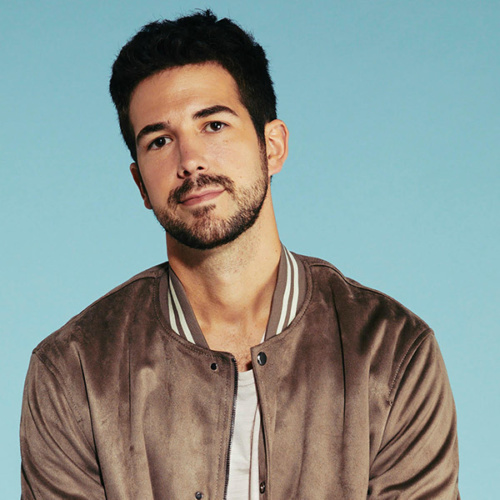
Ben Johnson
Ben Johnson is a Songwriter, Producer, and artist living in Nashville, TN. He is signed to a worldwide co-publishing deal with Tape Room Music (Nashville) and Artist Publishing Group (Los Angeles) as well as a record deal with BBR (Stoney Creek), and has written songs for artists such as Charlie Puth, Thomas Rhett, Kane Brown, Ava Max, Lee Brice, Meek Mill, Justin Timberlake, Lauren Alaina, Dierks Bentley, HARDY, and more.
Originally from Meridian, Mississippi, Johnson grew up surrounded by music. He is a classically trained Pianist and Cellist, and grew up performing everywhere from bluegrass festivals to orchestra concerts. From a young age, Johnson has written and produced music with his two sisters in their country band Track45 (managed by Missi Gallimore and Gary Borman, and signed to BBR/Stoney Creek).
In 2012, Johnson moved to Nashville to attend Belmont University, and it was at this time that he began co-writing. Johnson also made many connections in the country world singing BGVs for the CMA Awards each year–heʼs had the opportunity to perform with artists like Dolly Parton, Alan Jackson, George Strait, Reba, and many more. Johnson met Ashley Gorley of Taperoom Music through a co-writer and they began working together, leading to Johnsonʼs eventual signing at Tape Room Music/APG in 2018.
His first major cut was “Patient” with multi-platinum pop artist Charlie Puth on his 2018 album “Voicenotes”. Since then, heʼs had dozens of cuts in both the pop and country worlds, as well as success as a Producer. Johnson had his first #1 in 2020 with Lee Brice’s “One of Them Girls”, which stayed at the top of the charts for 3 weeks. He’s also had #1 songs with Weezer (“All My Favorite Songs”) and Dierks Bentley (“Gone”).
Currently, Ben spends most of his time writing and producing at his studio on Music Row, and working with his band Track45. Track45 released their first EP in 2020, and their single “Met Me Now” went to radio in 2021. The song earned them a spot as the most added artist on country radio the week of its release. Find Track45 online at www.track45.com.
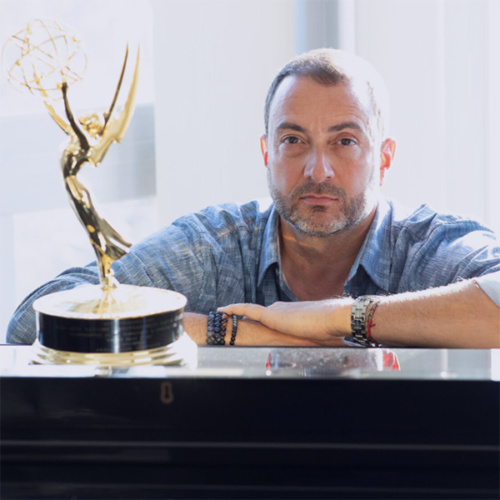
Peter Zizzo
Peter Zizzo is an Emmy and Grammy Award-winning Songwriter and Producer whose work has sold in excess of one hundred million records worldwide.
He has written/produced worldwide hit songs for, and with, artists including Jennifer Lopez, Celine Dion, Avril Lavigne, Jason Mraz, Billy Porter, Brie Larson, M2M, Pixie Lott, BeBe and CeCe Winans (Grammy Winner: Best Gospel Album), and many, many more. His songs have also been featured in many major films and television shows.
As a talent developer, he was instrumental in the early careers of Avril Lavigne, Vanessa Carlton, Billy Porter, and Pixie Lott.
As a Composer for children’s television, he has written and produced the theme songs for hit Nickelodeon’ shows like Blue’s Clues and You, Rusty Rivets, Middle School Moguls, and Fresh Beat Band of Spies, and countless other songs for TV shows including Peter Rabbit (Emmy Nominee: Best Original Song), The Fresh Beat Band (Emmy Winner: Best Musical Composition / Direction) Winx Club, Norman Picklestripe, and many others.
Recently, Peter’s focus has shifted more and more toward the children’s television space: “Oddly, I’ve found that almost no other songwriting endeavor I’ve undertaken has so completely freed me to explore so many genres of music, while also tapping into my Jordan-esque level of pun-manship. I love the role songwriting plays in children’s storytelling. I can just fully externalize my messy, uncool inner creative child. In truth, I’m not that messy anymore. Though I do remain highly, and proudly, immature.”
In addition to writing the songs for an upcoming Netflix children’s musical series, Peter is developing his own music-driven kids shows, and has begun a book about songwriting entitled Dare To Suck!.
A lifelong New Yorker, he recently moved to Los Angeles, and lives in Marina Del Rey.
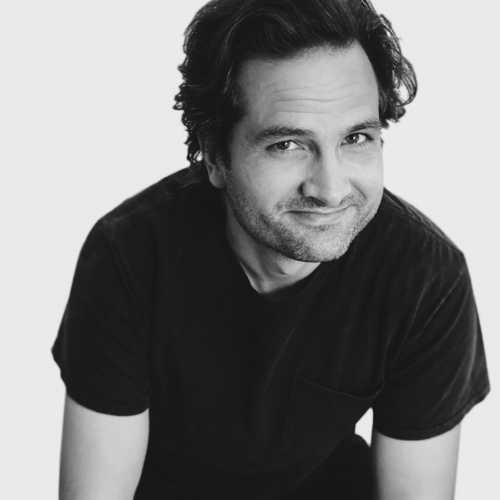
Aaron Espe
Aaron Espe is a Nashville-based songwriter/artist whose songs have been on ABC and CMT, in shows Grey’s Anatomy and Orange Is The New Black, and his song “Anytime I Go” was featured in a Stella Artois campaign. He’s worked with Brian F. Joseph, who has produced Bon Iver and Sufjan Stevens. Taylor Swift caught wind of his song “Making All Things New” and added it to her playlist “Songs Taylor Loves.” Through Nettwerk Records, he released the EP Through Frozen Forests, which peaked at #7 on the iTunes Singer/Songwriter chart.
He’s also the author of On Songwriting: Practical Tips and Insights from a Decade in Music City, which has garnered praise from Leigh Nash (frontwoman of Sixpence None The Richer), Philip Philips (certified Platinum recording songwriter/artist and 2012 American Idol winner), Barry Dean (Grammy-nominated hit songwriter for Little Big Town, Tenille Townes, Ingrid Michaelson), Isaac Slade (co-founder of Grammy-nominated band, The Fray) Ben West (songwriter and producer for P!nk, Tim McGraw, Lady Antebellum), and Bonnie Baker (songwriter for Reba McEntire, Hunter Hayes, Rachel Platten).

Judy Collins
Judy Collins is an award-winning singer-songwriter whose career dates back to the 1960s. Renowned for her unique interpretations of both traditional and contemporary folk classics, as well as her own deeply moving original works, she has earned widespread admiration.
Her iconic version of Joni Mitchell’s “Both Sides Now” from her groundbreaking 1967 album Wildflowers was inducted into the Grammy Hall of Fame. Judy’s hauntingly beautiful and intimate take on Stephen Sondheim’s “Send in the Clowns,” from the Broadway musical A Little Night Music, earned her the “Song of the Year” award at the 1975 Grammy Awards. She has enjoyed numerous top-ten hits and has released several gold- and platinum-selling albums.
More recently, artists like Rufus Wainwright, Shawn Colvin, Dolly Parton, Joan Baez, and Leonard Cohen have paid tribute to her legacy on the album Born to the Breed: A Tribute to Judy Collins.
Judy Collins remains as creatively active as ever, continuing to write, tour worldwide, and support emerging talent. A true Renaissance woman, she also serves as a filmmaker, record label executive, musical mentor, and a sought-after keynote speaker on topics like mental health and suicide prevention. Through her music, she continues to offer hope and healing, touching hearts and lighting the way for others.


